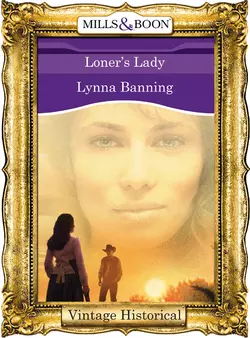Loner′s Lady

Lynna Banning
Тип: электронная книга
Жанр: Современная зарубежная литература
Язык: на английском языке
Стоимость: 150.68 ₽
Статус: В продаже
Издательство: HarperCollins
Дата публикации: 16.04.2024
Отзывы: Пока нет Добавить отзыв
О книге: SHOULD SHE TRUST HIM?When a stranger turned up at her farm, in need of a place to rest, Ellen O′Brian didn′t have the heart to turn him away. He looked darkly dangerous, but she could handle herself; she had learned hard and fast when her husband upped and left.Jess Flint couldn′t help but admire Ellen′s courage and grit–even though he had to keep secrets from her. He showed her what it was like to feel like a woman again, to have a man to hold and rely on. With danger just around the corner, could their bond help them survive–or would his past tear them apart?